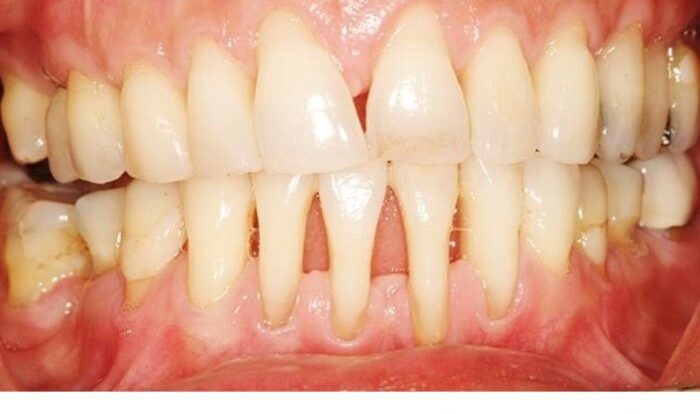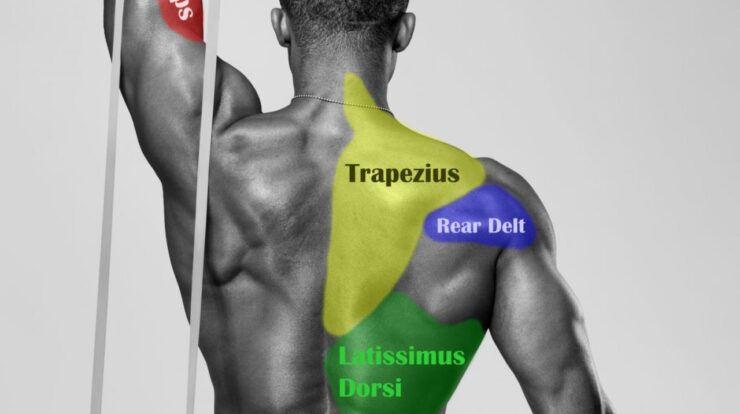
How to cure gum disease without a dentist – If you’re struggling with gum disease, you don’t have to suffer. There are plenty of ways to cure gum disease without a dentist, and we’re going to share them with you in this article. We’ll cover everything from natural remedies to dietary modifications to alternative therapies.
So, what are you waiting for? Start reading and get your gums back to health!
Gum disease is a common problem that can affect people of all ages. It’s caused by bacteria that build up on the teeth and gums, and it can lead to a variety of problems, including bleeding gums, swelling, and pain.
If left untreated, gum disease can even lead to tooth loss.
Identify the Causes of Gum Disease

Gum disease, also known as periodontal disease, is a common condition that affects the gums and the bones supporting the teeth. It is caused by a combination of factors, including poor oral hygiene, smoking, genetics, and underlying medical conditions.
Poor oral hygiene is the most common cause of gum disease. When plaque and tartar accumulate on the teeth, they can irritate the gums and cause them to become inflamed. If the inflammation is not treated, it can lead to gum disease.
Smoking is another major risk factor for gum disease. The chemicals in cigarettes damage the gums and make them more susceptible to infection.
Genetics also plays a role in gum disease. Some people are more likely to develop gum disease than others, regardless of their oral hygiene habits or smoking status.
Certain medical conditions can also increase the risk of gum disease. These conditions include diabetes, HIV/AIDS, and leukemia.
If you’re suffering from gum disease, you may be wondering if there’s a way to cure it without seeing a dentist. The good news is that there are a few things you can do to improve your gum health and reduce your symptoms.
Click here to learn more about how to cure gum disease without a dentist.
Symptoms of Gum Disease, How to cure gum disease without a dentist
The symptoms of gum disease can vary depending on the severity of the condition. In the early stages, gum disease may cause only mild symptoms, such as:
- Red, swollen, or bleeding gums
- Bad breath
- Loose teeth
As gum disease progresses, the symptoms can become more severe, including:
- Pain when chewing
- Pus between the teeth and gums
- Receding gums
- Tooth loss
Natural Remedies for Gum Disease
Gum disease, also known as periodontal disease, is a common problem that can affect people of all ages. It’s caused by bacteria that build up on the teeth and gums, leading to inflammation and infection. If left untreated, gum disease can damage the teeth and gums, and even lead to tooth loss.
There are a number of natural remedies that can help to treat gum disease. These remedies can help to reduce inflammation, kill bacteria, and promote healing.
Salt Water Rinses
Salt water rinses are a simple and effective way to treat gum disease. Salt water helps to reduce inflammation and kill bacteria. To make a salt water rinse, dissolve 1/2 teaspoon of salt in 1 cup of warm water. Rinse your mouth with the salt water for 30 seconds, then spit it out.
Repeat 2-3 times per day.
Gum disease is a serious condition that can lead to tooth loss. If you’re looking for a way to cure gum disease without a dentist, there are a few things you can do. One option is to use a saltwater rinse.
Saltwater can help to reduce inflammation and kill bacteria. You can also try using a hydrogen peroxide rinse. Hydrogen peroxide is a natural antiseptic that can help to kill bacteria and promote healing. If you’re looking for a more natural approach, you can try using essential oils.
Some essential oils, such as tea tree oil and peppermint oil, have antibacterial and anti-inflammatory properties that can help to improve gum health. How to cure gum disease without a dentist . If you’re experiencing symptoms of gum disease, it’s important to see a dentist as soon as possible.
Gum disease can lead to serious health problems, so it’s important to get treatment as soon as possible.
Baking Soda
Baking soda is another effective natural remedy for gum disease. Baking soda helps to neutralize acids in the mouth and kill bacteria. To use baking soda, make a paste by mixing 1 teaspoon of baking soda with 2 teaspoons of water.
Apply the paste to your gums and teeth, and let it sit for 5 minutes. Rinse your mouth with water, and repeat 2-3 times per day.
Coconut Oil Pulling
Coconut oil pulling is a traditional Ayurvedic practice that is said to help improve oral health. Coconut oil pulling involves swishing a tablespoon of coconut oil in your mouth for 15-20 minutes. The oil helps to remove bacteria and toxins from the mouth, and it also has anti-inflammatory properties.
To do coconut oil pulling, swish a tablespoon of coconut oil in your mouth for 15-20 minutes, then spit it out. Rinse your mouth with water, and repeat 2-3 times per day.
Herbal Teas
Certain herbal teas have antibacterial and anti-inflammatory properties that can help to treat gum disease. Some of the most effective herbal teas for gum disease include green tea, chamomile tea, and peppermint tea. To make an herbal tea, steep 1 teaspoon of dried herbs in 1 cup of boiling water for 10 minutes.
Strain the tea and drink it 2-3 times per day.
Dietary Modifications for Gum Health

Maintaining a balanced diet is crucial for overall health, including the well-being of your gums. Certain foods can promote gum health, while others may contribute to gum disease.
Consuming a diet rich in fruits, vegetables, and whole grains provides essential vitamins, minerals, and antioxidants that support healthy gums. These foods contain compounds that help fight inflammation, strengthen the immune system, and promote tissue repair.
Foods to Promote Gum Health
- Citrus fruits:Oranges, grapefruits, and lemons are rich in vitamin C, an antioxidant that supports collagen production, a protein essential for healthy gums.
- Berries:Blueberries, raspberries, and strawberries contain antioxidants that protect against gum inflammation and damage.
- Leafy greens:Spinach, kale, and collard greens provide calcium, which is essential for strong bones and teeth.
- Whole grains:Brown rice, quinoa, and oats contain fiber, which helps remove plaque and bacteria from the teeth.
Foods to Avoid
- Sugary foods and drinks:Sugars feed the bacteria in the mouth, leading to plaque formation and gum inflammation.
- Sticky foods:Foods like caramel and gummy candies adhere to the teeth and provide a breeding ground for bacteria.
- Acidic foods:Citrus fruits and tomatoes can erode tooth enamel and irritate the gums.
- Processed foods:These foods are often high in unhealthy fats and sugars, which can contribute to inflammation and gum disease.
Alternative Therapies for Gum Disease

Alternative therapies for gum disease offer potential benefits, but it’s crucial to approach them with caution.
Acupuncture
Acupuncture involves inserting thin needles into specific points on the body to stimulate the body’s natural healing mechanisms. While some studies suggest acupuncture may reduce inflammation and pain associated with gum disease, more research is needed to confirm its effectiveness.
Laser Therapy
Laser therapy uses a low-level laser to target bacteria and promote tissue regeneration. It may help reduce inflammation and bleeding, but its long-term effectiveness requires further investigation.
Ozone Therapy
Ozone therapy involves exposing the gums to ozone gas to kill bacteria. While it may have antibacterial properties, its effectiveness in treating gum disease is still being studied.
It’s important to note that alternative therapies should not replace traditional dental care. Consult with a qualified healthcare professional before using any alternative therapies.
Prevention and Maintenance: How To Cure Gum Disease Without A Dentist

Gum disease can be prevented and managed with proper oral hygiene and regular dental checkups. Regular dental cleanings remove plaque and tartar buildup, reducing the risk of gum disease. Proper brushing and flossing techniques help maintain good oral hygiene and prevent gum disease.
Gum disease can be a pain, but you don’t always have to go to the dentist to fix it. There are a few things you can do at home to help cure gum disease without a dentist. First, try how to cure gum disease without a dentist by rinsing your mouth with salt water.
This will help to kill bacteria and reduce inflammation. You can also try using a mouthwash that contains chlorhexidine. This is a powerful antiseptic that can help to kill bacteria and prevent gum disease from spreading. Finally, be sure to brush and floss your teeth regularly.
This will help to remove plaque and bacteria from your teeth and gums.
Regular Dental Checkups and Cleanings
Regular dental checkups allow dentists to detect and treat gum disease early on, preventing further damage. Dental cleanings remove plaque and tartar buildup, which can irritate gums and lead to gum disease. Aim for dental checkups and cleanings every six months or as recommended by your dentist.
Proper Brushing and Flossing Techniques
Proper brushing and flossing techniques are essential for maintaining good oral hygiene and preventing gum disease. Brush your teeth twice a day with a soft-bristled toothbrush and fluoride toothpaste. Floss daily to remove plaque and food particles from between teeth where brushing cannot reach.
Use a gentle circular motion when brushing and avoid brushing too hard, as this can damage gums.
Final Wrap-Up
We hope this article has given you some helpful information on how to cure gum disease without a dentist. Remember, the best way to prevent gum disease is to practice good oral hygiene. Brush and floss your teeth regularly, and see your dentist for regular checkups and cleanings.
Questions Often Asked
Can I cure gum disease without going to the dentist?
Yes, there are a number of natural remedies that can help to cure gum disease. Some of these remedies include salt water rinses, baking soda, coconut oil pulling, and herbal teas.
What are the symptoms of gum disease?
The symptoms of gum disease can include bleeding gums, swelling, pain, and bad breath.
What are the causes of gum disease?
Gum disease is caused by bacteria that build up on the teeth and gums. These bacteria can come from a variety of sources, including food, drinks, and tobacco smoke.





